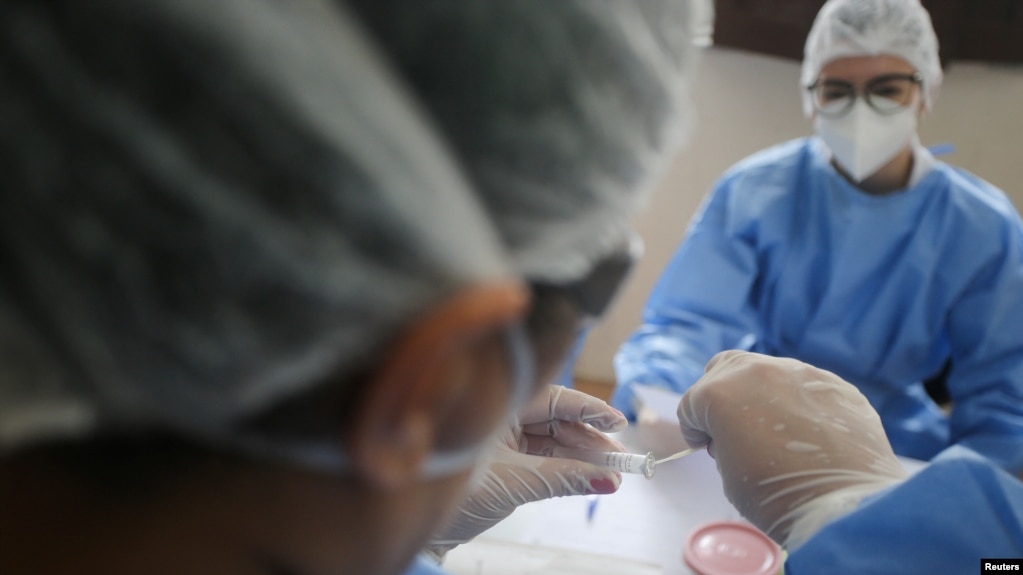
A health worker prepares a sample of test for the coronavirus disease (COVID-19), after cases of the Omicron variant were detected in Porto Alegre, Brazil, January 20, 2022. (REUTERS/Diego Vara)
World health officials are offering hope that the slowing spread of Omicron may lead to a weakening of the COVID-19 pandemic. But officials also warn of hard weeks ahead and the possibility of another, more dangerous variant appearing.
In the United States, daily case numbers are dropping sharply. The same thing happened weeks earlier in Britain and South Africa. Researchers predict a period of low spread in many countries by the end of March.
This week, the World Health Organization said in a statement it expects the “emergency phase” of the pandemic to end this year. It also said the Omicron variant offers “hope for…normalization.”
Also this week, U.S. health official Dr. Anthony Fauci appeared on the television program “This Week” on ABC. He said COVID-19 case numbers could fall to low enough levels that the U.S. could get “back to a degree of normality.”
Fauci leads the U.S. National Institute of Allergy and Infectious Diseases and is chief medical adviser to President Joe Biden.
Both Fauci and the WHO’s Europe director, Dr. Hans Kluge, warned that new variants are likely to appear. But they believe that vaccines, new drug treatments, testing and masks will help keep life more normal during future surges.

In the U.S., new cases are averaging a still extraordinarily high 680,000 a day. That is down from an all-time high of over 800,000 a little more than a week ago.
The places in the U.S. where omicron first spread are seeing the sharpest drops. U.S. hospital admissions of patients with confirmed COVID-19 have dropped about 7 percent from the week before. That information comes from the U.S. Centers for Disease Control and Prevention.
Dr. Christopher Murray is with the University of Washington. He developed the Institute for Health Metrics and Evaluation model. The model shows all nations will be past the Omicron wave by the middle of March. The wave will leave behind high levels of immunity – both from infection and vaccination. This could lead to low levels of spread for many weeks or months.
Murray’s model also estimates that 57 percent of the world’s population already has been infected with the virus at least once.
A research group at Pennsylvania State University also predicts a strong drop in the U.S. by April. But the appearance of a new variant that is less affected by growing levels of immunity could change that.
“It would be dangerous to forget that possibility, as it has caught us before,” said Katriona Shea. She leads the team that develops the models.
Shea also noted that the models show 16,000 to 98,000 more Americans dying before the Omicron wave is over. COVID-19 has killed almost 870,000 people in the United States already. Deaths from the disease around the world total more than 5.5 million.
I’m Ashley Thompson.
The Associated Press reported this story. Ashley Thompson adapted it for VOA Learning English.
_____________________________________________________________
Words in This Story
variant – n. something that is different in some way from others of the same kind
phase – n. a part or step in a process : one part in a series of related events or actions
mask – n. a covering for your face or for part of your face
surge – n. a sudden, large increase